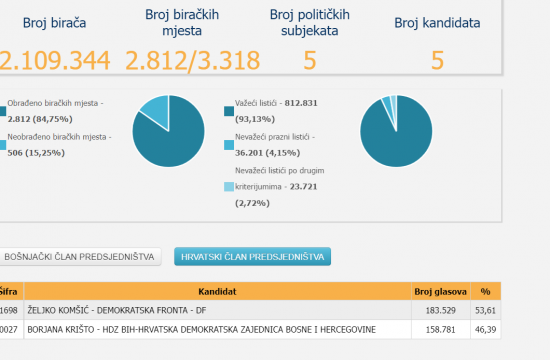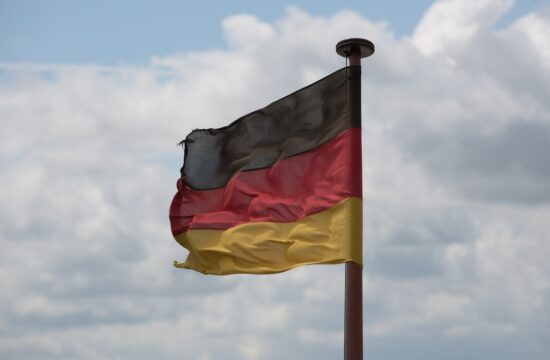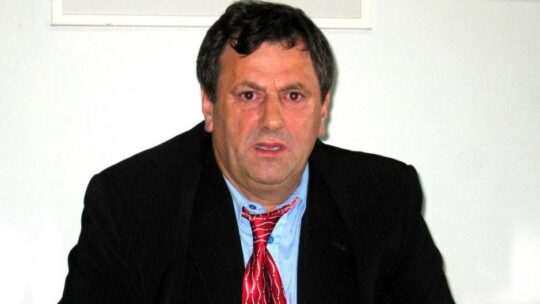
The recent denials and rejections of international court rulings by politicians in the region is a sign that relations within the UN are “disturbed,” Emir Zlatar, the Secretary General of the Council of Congress of Bosniak Intellectuals, told N1 on Monday.
“Statesmen who question rulings by UN courts (…), even from those countries which are members (of the UN) and which signed that they will respect rulings by those courts, bring about these situations which turn into a problem and it is not just a problem of the region, but a problem that stretches even outside of Europe,” he said.
“Obviously, the relations within the United Nations are disturbed, as such statements regarding the denial of those rulings should, if nothing else, at least be put on the agenda in order to see what is happening,” he added.
Zlatar said that one factor which is often overlooked is the body that the international community set up to oversee the civilian implementation of the 1995 Dayton Peace Agreement which ended the Bosnian war, the Office of the High Representative (OHR).
“The fact that apart from the three constituent peoples in Bosnia there is a fourth pillar which was incorporated, the High Representative, is often forgotten or pushed aside. We are a small country without even an important impact on regional processes,” he said. “We do not use pressure on that fourth segment, the OHR, enough so that it can solve problems which are within its competencies.”
Zlatar also commented on an announcement by authorities in the Serb-majority semi-autonomous entity within the country, Republika Srpska (RS), that it will form two new commissions to investigate the wartime events in Srebrenica and Sarajevo.
For Zlatar, the commissions are “unnecessary.”
He said they would have to reexamine the results of an already completed research, and that it would be enough if the commissions would just review the verdict by the International Court of Justice which ruled that Serbia is guilty of not preventing the genocide.
One of the problems in the region is that facts are being interpreted very freely, he said.
“There are situations where political statements are treated as if they were above the law, which is unacceptable. Certain political leaders interpret rulings as if they are rulings of some municipal courts from the province and not of the European Court for Human Rights,” Zlatar said.
The intellectual also commented on how certain convicted war criminals have been welcomed back after they served their sentences. The problem is that “ruling political elites are involved in creating an image that war criminals are heroes (…) instead of presenting the facts and documents based on which those people were convicted,” he said, adding that this kind of behaviour only deepens the crisis.
Zlatar also commented on a recently announced initiative by the main Bosniak Party for Democratic Action (SDA), which said it would challenge the name of Republika Srpska citing discrimination.
The current Chairman of Bosnia’s tripartite Presidency, Bosnian Serb leader Milorad Dodik, said that should the SDA do so, RS authorities would work on adding ‘Western Serbia’ to the name.
“Both sides have a right to submit various initiatives, and the SDA initiative has not even been submitted yet,” he said.
“Everyone can see that the name RS is discriminating, but the timing of when the initiative was made public shows that it is about a political trade-off, coercion. This was also an expected response from Milorad Dodik, who immediately argues from the other position,” he said.
Zlatar called the entire back and forth between the leaders “nonsense.”




